8 Reasons Why You Should Encourage Imaginative Play in Kids

When children pretend play they build social skills, language skills and self-control.
Unlike video games imaginative play requires children to invent their own stories. By doing this they are training their brains to transform ideas into words, this improves vocabulary and grammar. They’re also looking outside their own needs and desires.
What is Pretend Play?
It is a type of play where kids are involved in activities that are not typical of child-like play.
In other words, creating alternate realities to the world around them. For example, pretending to be a firefighter to put a fire out, or a veterinarian to help a sick cat.
By responding to imaginative characters and situations children learn compassion, empathy and understanding.
Studies show children control their impulses better while pretend playing. That is because they have to take a role and play within those boundaries especially with other kids. Doing this prepares kids to think creatively by dealing with real problems.
As parents, fostering our children’s imaginations should be a priority.
“Imagination is more important than knowledge. For knowledge is limited to all we now know and understand, while imagination embraces the entire world, and all there ever will be to know and understand.” – Albert Einstein
Imaginative Play Benefits
1. Pretending makes children more creative
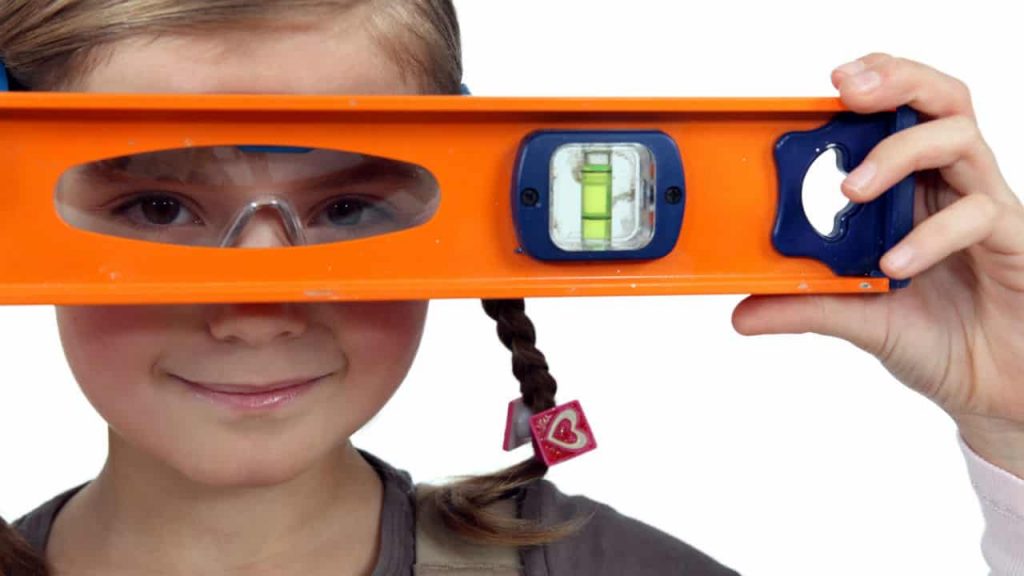
Pretend play allows children to innovate, to imagine being someone, something else or to fantasize about engaging in activities they usually don’t have access to, such as being an astronaut walking on the moon.
2. Kids get better at Problem Solving
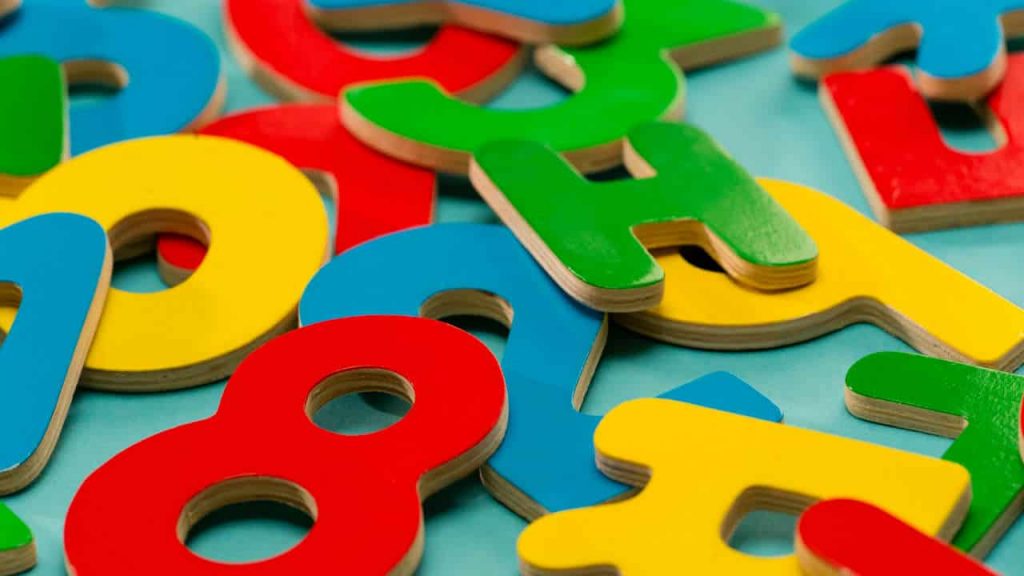
Children who play make believe regularly are better problem-solvers as they grow older.
Experts say that it is because children have to make decisions very often during their own stories to reach a desired end.
3. Better understanding of conservation
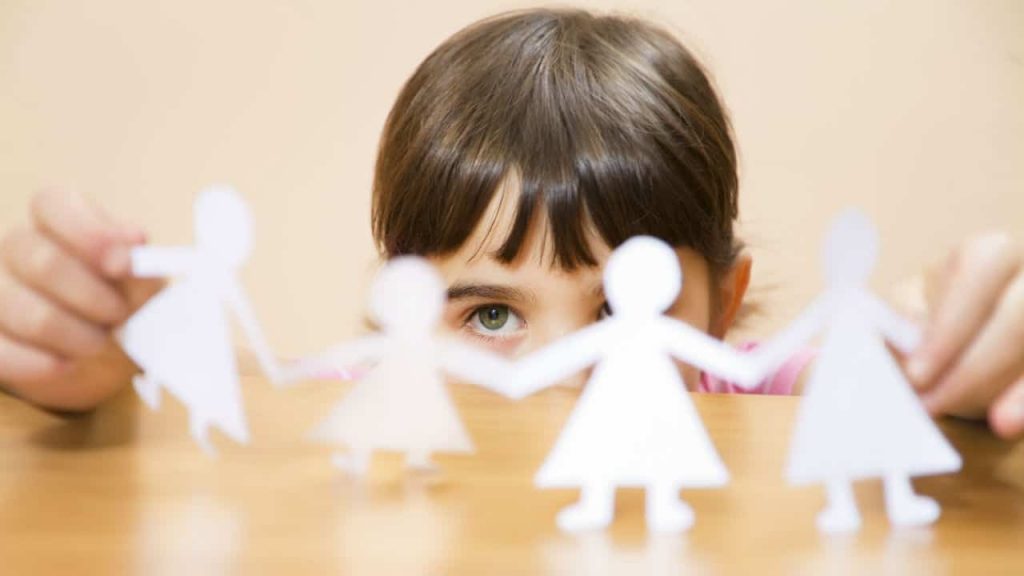
Pretend playing children must keep one reality in mind while simultaneously focusing on a represented alternative.
It is like mentally transforming an object to pretend is another, for example using a wooden spoon to pretend it’s a wizard’s wand.
4. Improved language skills
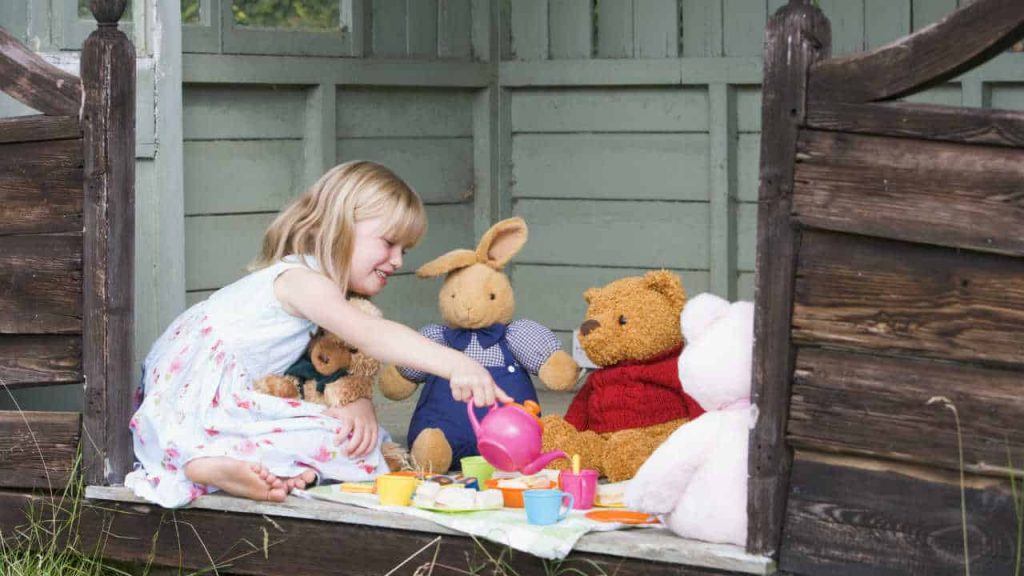
Research has found that imagination appears to develop in kids brains around the same time as children learn to talk.
When littlies create their stories and are part of make believe situations, they have to rely on their language to describe their actions.
They often repeat words they hear older adults use, so they learn how to say the things they want better.
5. Increased ability to tell and comprehend stories
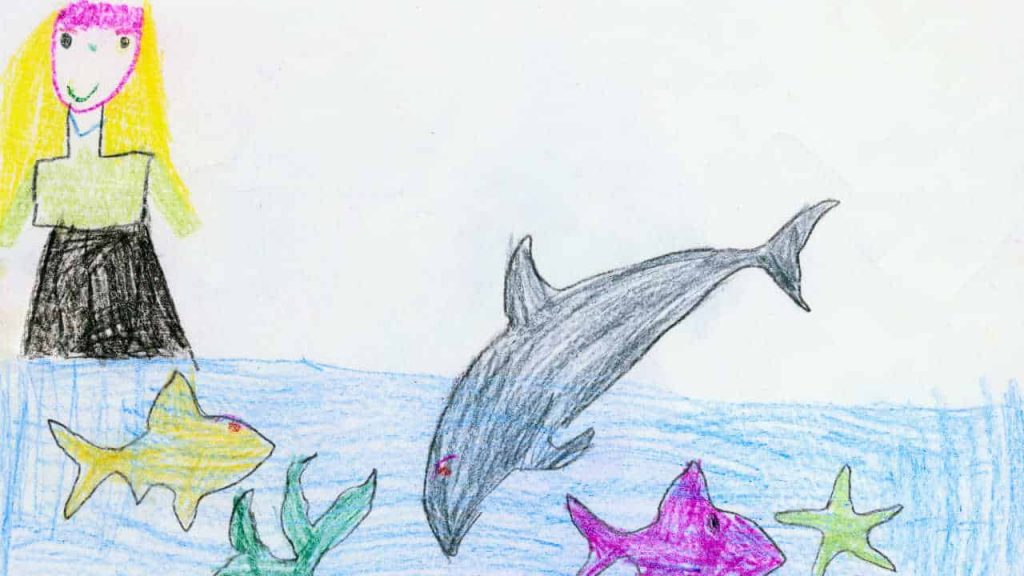
Make believe requires kids to create pretend scenarios and tell inventive stories. Since almost all littlies narrate their imaginative stories, they train their minds to change thoughts into words.
6. Kids get better at self-regulation
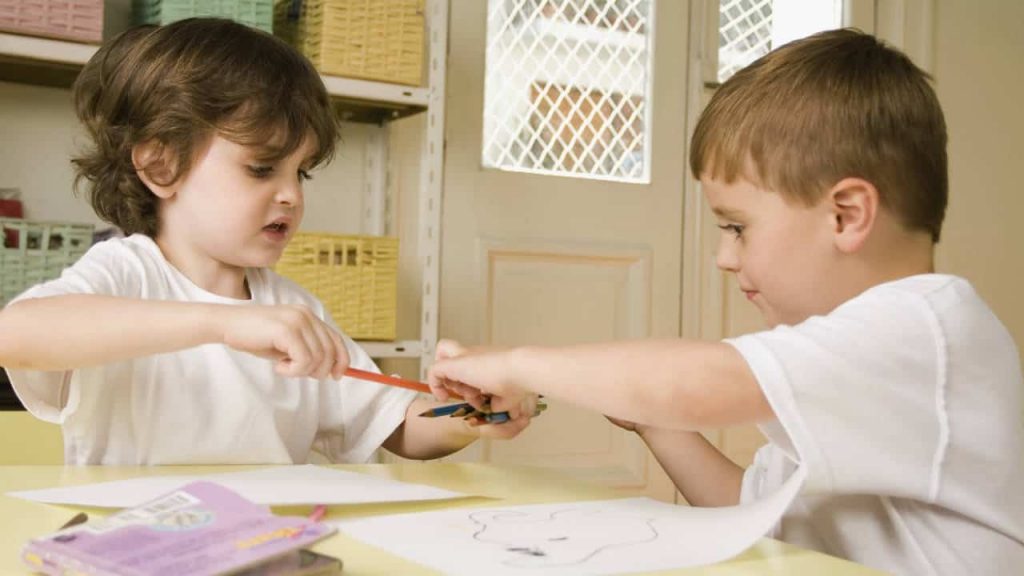
Little kids naturally have little self-control. During pretend play, children have to take a role and play within those boundaries, especially when other kids are involved.
Kids can find themselves in stressful situations, like dealing with conflict from other kids, so they have to learn how to sort their way out of it.
7. Assimilation of the meaning of empathy
Pretend play requires children to look outside of their own needs and desires. When kids play make believe, they learn about compassion, empathy, and understanding, as they have to get themselves in other character’s shoes.
8. Better ability to socialise
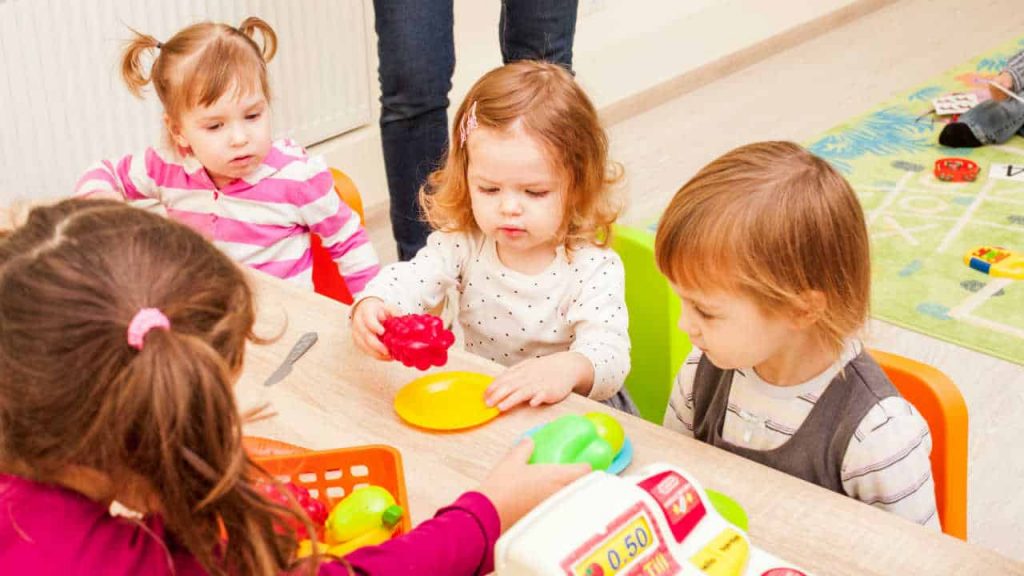
Children’s social skills such as sharing, turn taking and chatting increase as kiddies work out the scenes of an imaginative story with siblings and friends.
Similarly, when pretend playing, children’s interactions with other kids last longer, are more intricate, involved and more cooperative. Pretend social situations remind kids of how their parents engage to others around them.
Ways to encourage pretend play
The best way to encourage imaginative play in children is to set up a safe play space in the house. Ideally stock it with toys that spark creativity and imagination. Wooden toys are among the best choices, puppets, stuffed animals, costumes, etc.
Arts and crafts help children to improve their creativity as they boost focus and concentration while developing hand-eye coordination.
As you can see from above, the benefits of Imaginative play are numerous.
However, researchers have found the biggest improvements in the areas of creativity, language, social skills, coping and emotion regulation. In general Imaginative Play is a powerful tool for kids development. Wannabees is all about imaginative and pretend play. We encourage parents to join the fun, as we know that imaginative play is more effective when kids see parents’ approval of their make believe world.
Our unique set up, atmosphere and activities are the best opportunity to help your kids boost their social, linguistic and emotional skills. At Wannabees we have created a set of activities specially designed by our educators, to help your kids blossom.
Also we recommend reading our article “Best Toys And Activities That Will Help Your Child’s Development“.
